
Greenhouse of hope: How one mother is overcoming Tajikistan’s harshest climate to nourish her community
Through AKF and USAID’s Local Impact project, rural women in Tajikistan are taking the lead in providing food security to their communities.

Sitting 3,270 meters above sea level, Tajikistan’s Murghab district grapples with an unforgiving climate. The arid and mountainous landscape along with winter temperatures as low as -24°C make vegetable cultivation almost impossible.
The mainstay of the population in one of Tajikistan’s most remote regions is livestock breeding. As a result, the community here suffers from a deficiency of essential plant-based vitamins, which especially impacts the health of women and children. Whilst a local vegetable market exists, the high prices means fresh produce is an unaffordable luxury for most families.
Sapargul, a local resident, has emerged as a beacon of hope in this remote community. She is producing healthy vegetables in the shelter of a climate-smart greenhouse.
With a focus on organic production, Sapargul’s innovatively designed greenhouse defies the Murghab’s high winds and bitter temperatures providing a year-round source of fresh vegetables. The greenhouse is shaped like a tunnel to withstand strong wind and is covered with polyethylene and semi-carbonate to keep it warm. Sapargul uses cold and disease-resistant seeds, further bolstering the resilience of her produce.

Murghab’s stark mountain environment, where winter temperatures reach as low as -24°C.
Sapargul was born in Tajikistan’s Lakhsh district but moved to Murghab after she married. With an altitude of 1,834 metres, Lakhsh’s climate is much less severe than Murghab’s. Having previously farmed in Lakhsh, Sapargul quickly realised that cultivating crops in her new home was going to be much more difficult. “I noticed that my children, as well as other people [in the community], were suffering from a lack of vitamins. My husband and I decided to establish a greenhouse, so that we could be healthier,” she says.
I noticed that my children, as well as other people [in the community], were suffering from a lack of vitamins.
Yet for Sapargul and her family, there was a significant obstacle to overcome; building a robust greenhouse requires substantial investment. Sapargul improvised with a small piece of land where she cultivated some greens using polyethylene plastic, but the structure wasn’t strong enough and quickly deteriorated.
Then came the breakthrough – Sapargul heard about a new skills-based programme for building greenhouses in Murghab. Funded by USAID through the Aga Khan Foundation’s Local Impact project, the aim of the initiative was to enhance nutrition in Tajikistan’s remote communities, as well as to boost incomes. Farmers like Sapargul submitted their applications, demonstrating their existing skills and dedication to maintaining a greenhouse in their community.
Sapargul was chosen as one of the top applicants, which marked the beginning of a journey that would change not only her life but the life of her community too.
Sapargul has been operating her climate-smart greenhouse since 2022, and it wasn’t long before she “started to earn some money from the sale of vegetables I produced in the greenhouse,” she explains. “It makes me very happy, as I can fulfil lots of shortages I have in my family.”
It makes me very happy, as I can fulfil lots of shortages I have in my family.
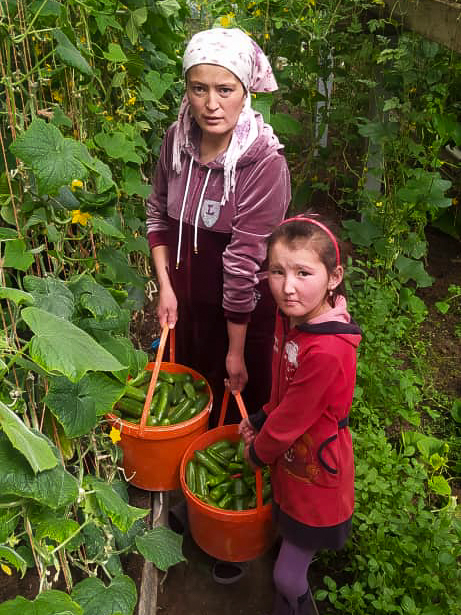
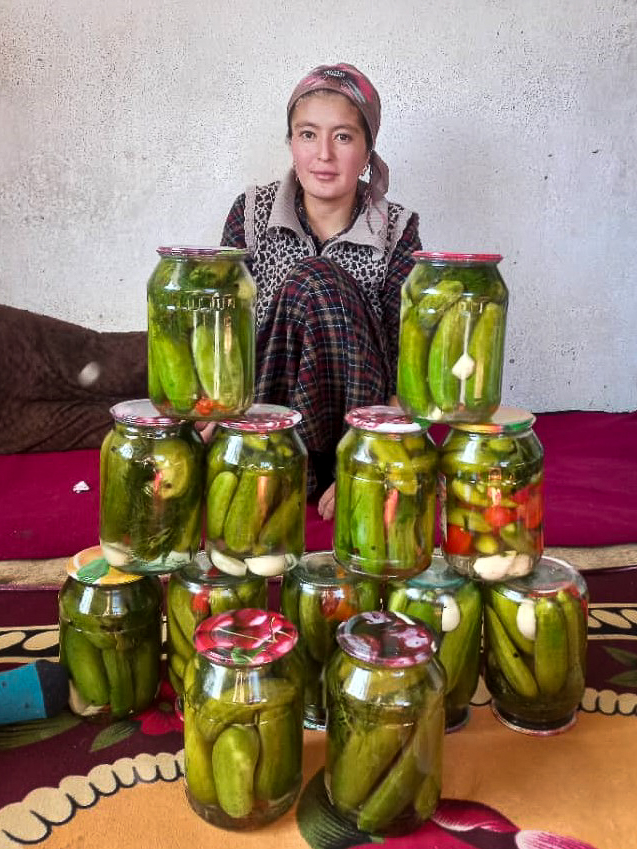
She grows organic cucumbers, cabbages, tomatoes, and more. From April to September 2023, Sapargul’s greenhouse produced 284kg of cucumbers, 292 bundles of greens, and 138kg of tomatoes. In total, Sapargul earned TJS 4,445 (around $400 USD) during this period.
Sapargul keeps some of the vegetables for her family, sells some to the local market, pickles some for preservation, and gives the rest to her neighbours, free of charge. Her harvests serve more than 1,700 local households, creating three jobs and benefiting more than 6,700 people.
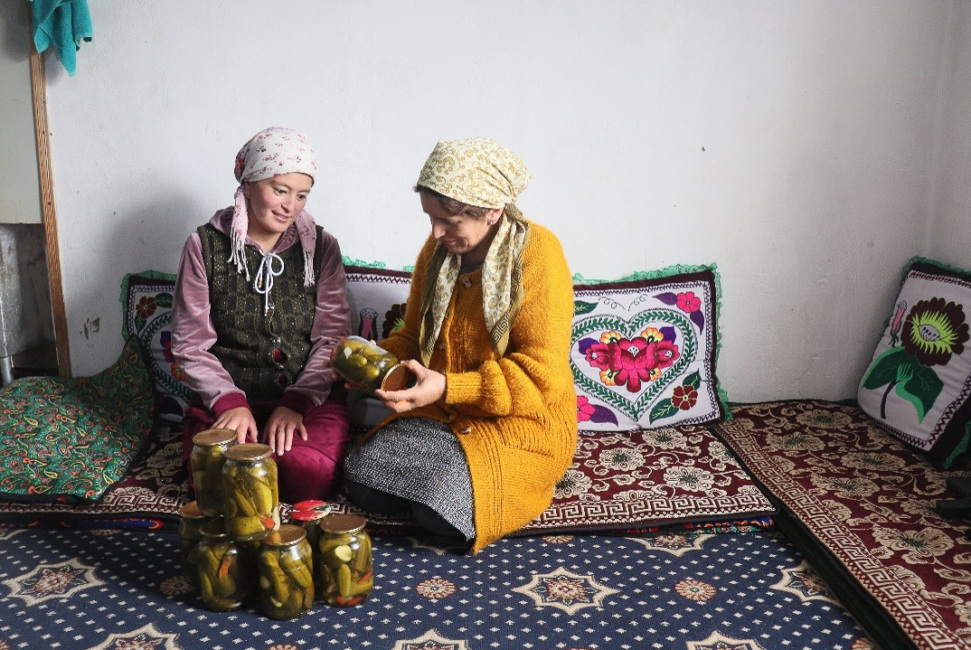
Sapargul sells her produce to her community, providing jobs for her neighbours and improving nutrition throughout her village.
Through this initiative, AKF plans to support more farmers like Sapargul in enhancing their organic produce cultivation, increasing the variety of vegetables, and elevating the quality of their harvests. The project also aims to help farmers tackle challenges such as maintaining the optimal temperature in the greenhouse and managing plant diseases.
In Murghab, this greenhouse transcends the simple provision of food. It’s about empowering women like Sapargul, equipping them with the tools and opportunities needed to create a better life for themselves and their community. Sapargul’s success story is a testament to her determination, even in the harshest of conditions. In this remote corner of the world, a brighter future is emerging, thanks to a greenhouse filled with hope and fresh, healthy produce.
Written by Firuzai Muzaffar.
Local Impact is a $150m multi-year, multi-sector, and multi-country global partnership between AKF and USAID for meaningful, sustained impact across Asia and Africa. It is a five-year Leader with Associates (LWA) cooperative agreement that allows USAID to work with AKF and its partners to design and implement projects that address development challenges across sectors. Drawing on human-centered design tools and processes, Local Impact will spark new, innovative solutions to complex problems while tapping into existing productive efforts to address these issues at the grassroots level.
For more information, visit: www.akfusa.org/local-impact
This article is made possible by the generous support of the American people through the United States Agency for International Development (USAID). The contents are the responsibility of AKF and do not necessarily reflect the views of USAID or the United States Government.

Related News & Stories


Overcoming water scarcity in Tajikistan: Tamano’s story

AKF USA Atlanta Walk & Run 2024

AKF USA Atlanta Golf Tournament 2024
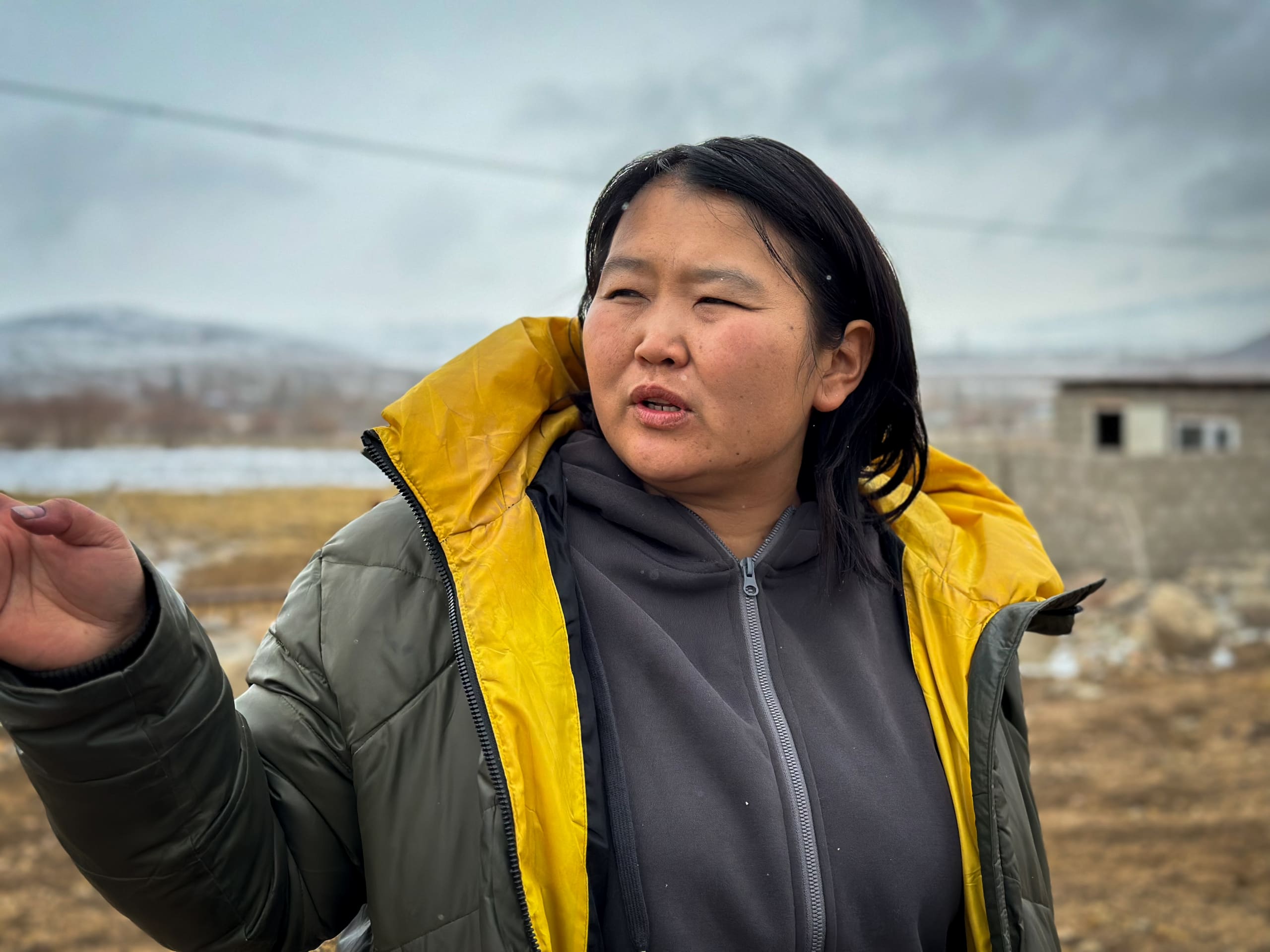
Building climate resilience: How eco-innovators are reducing water stress in the mountainous Kyrgyz Republic

Impact Odyssey 2.0: The Businesses of Tomorrow
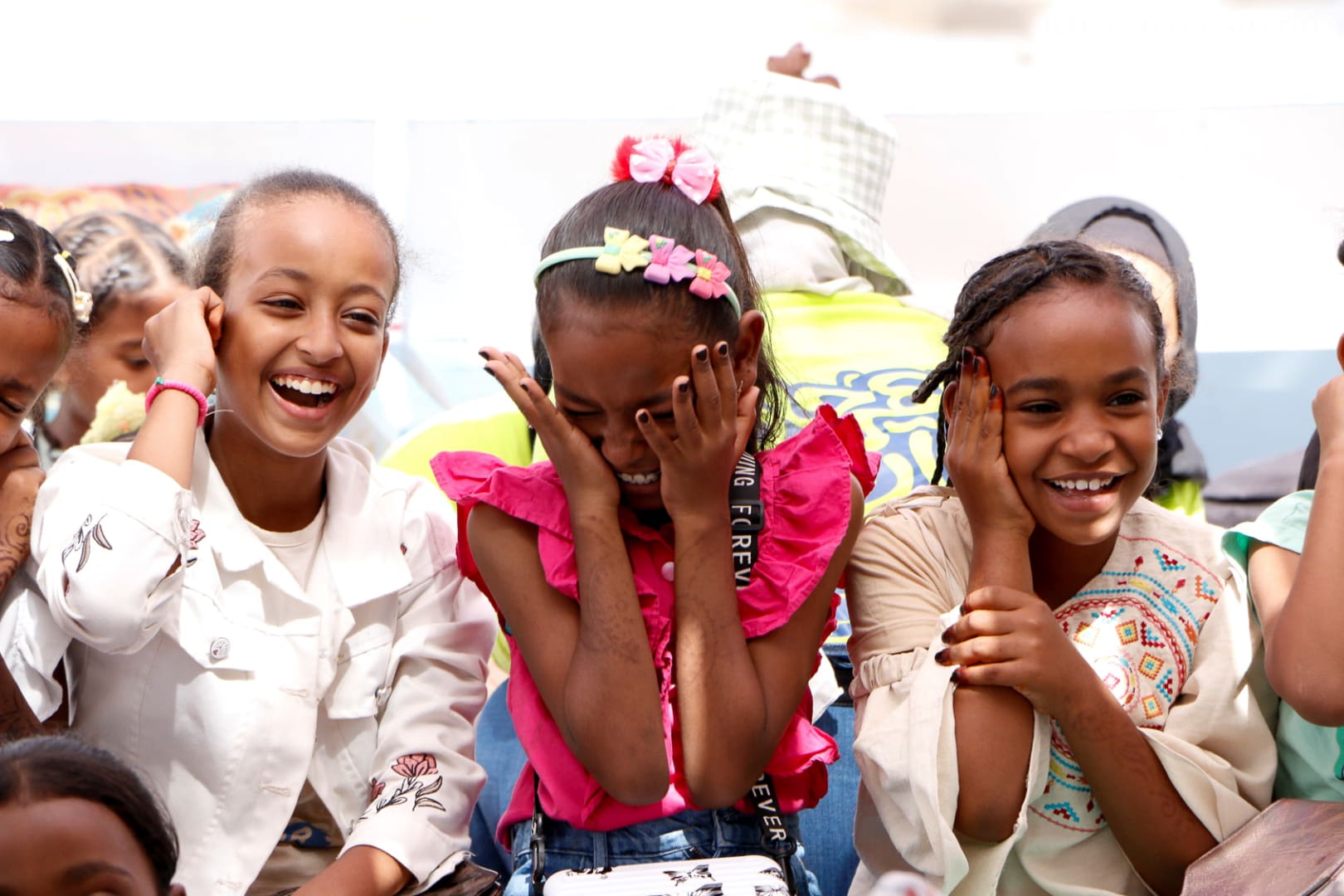
Support our work Your donations are helping us build a future where we all thrive together.